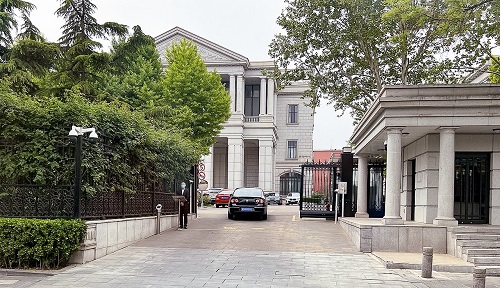Interference in the spotlight. Chinese woman ordered deported
OTTAWA – The first “round” of hearings began today, in the federal inquiry into foreign interference in Canada: a public inquiry, which requires the sharing of a series of confidential documents. The first five days of hearings will therefore serve to decide how to make that information public, to prepare the ground for the next public hearings which will probably take place at the end of March and which will serve to delve deeper into the accusations of Chinese, Indian and Russian foreign interference in the 2019 and 2021 federal elections, with a report on those matters due May 3. The investigation will then turn to policy questions, examining the government’s ability to detect, deter and counter foreign interference that targets Canada’s democratic processes. The final report is expected by the end of the year.
The first point remains, however, the identification of the methods, limits and potential negative impacts of disclosing classified information to the public on national security.
“It is one of the biggest challenges we will have to face,” said Commissioner Marie-Josée Hogue who will lead the public inquiry and who kicked off the work today by presenting the investigative commission. Then, tomorrow a group of university professors will talk about the balance between national security and the public interest; former senior Canadian Security Intelligence Service officials are scheduled to appear on Wednesday, followed Thursday by current intelligence personnel, including CSIS Director David Vigneault. The hearings will conclude on Friday with speeches by Dominic LeBlanc, Minister of Public Safety, Democratic Institutions and Intergovernmental Affairs, as well as closing statements from the participants.
Meanwhile, precisely on the subject of foreign interference, today it became known that the Canadian authorities issued, on August 28, an expulsion order against a Chinese woman because she was suspected of being part of Beijing’s foreign interference program. As Global News writes, in fact, the Immigration and Refugee Board (IRB) established that the woman, Jing Zhang, had worked for the Office of Overseas Chinese Affairs (OCAO), which according to the IRB would conduct espionage in Canada. Zhang would not have been directly involved in espionage but as an employee of the OCAO for eleven years she would have contributed to putting pressure on the Chinese diaspora.
According to the IRB, the People’s Republic of China (PRC) uses the OCAO to silence dissent abroad. The organization “was and remains involved in espionage against individuals and groups targeted by the PRC in Canada,” the IRB adds. According to Canadian authorities, the OCAO is one of several groups tasked by the Chinese Communist Party with eliminating “potential threats and rival speeches that challenge the power of the Chinese Communist Party. A key role of the OCAO is to gather intelligence on dissidents and ethnic minorities outside China,” the IRB says, particularly Taiwanese, Uyghurs, Falun Gong practitioners and Canadian citizens of Chinese origin.
The “modus operandi” would be the one implemented by Zhang, who from 2008 to 2019 was employed at the OCAO in Yangzhou, first as director of public relations and then as director of foreign relations. The woman traveled abroad for work up to four times a year and engaged with “target groups” both within China and in the diaspora, the IRB found. “Target populations included students, prominent individuals, government personnel and groups, and businesspeople,” explains the Immigration and Refugee Board. “Her activities and target populations demonstrate that she was achieving the objectives of the OCAO and the implementation of Qiaouw”, i.e. a Marxist-Leninist tactic that exploits interpersonal relationships to neutralize critics of the Communist Party, according to the IRB.
Zhang, who has a law degree, downplayed her role in the OCAO, blamed translation errors and argued that Canada had granted her multiple visas in the past without problems: she denied being a member of the OCAO, but the IRB determined that she was and that she had knowingly participated in its activities and supported its objectives.
Another former OCAO employee, Yong Zhang, was also deemed inadmissible to Canada in 2022.
In short, relations between Canada and China remain tense.
In the photo above: the headquarters of the United Front Work Department in Beijing, which also includes the OCAO, the office that “controls” Chinese abroad and where Jing Zhang worked. Canada deported her, on suspicion of “interferences” (photo from Wikipedia)



